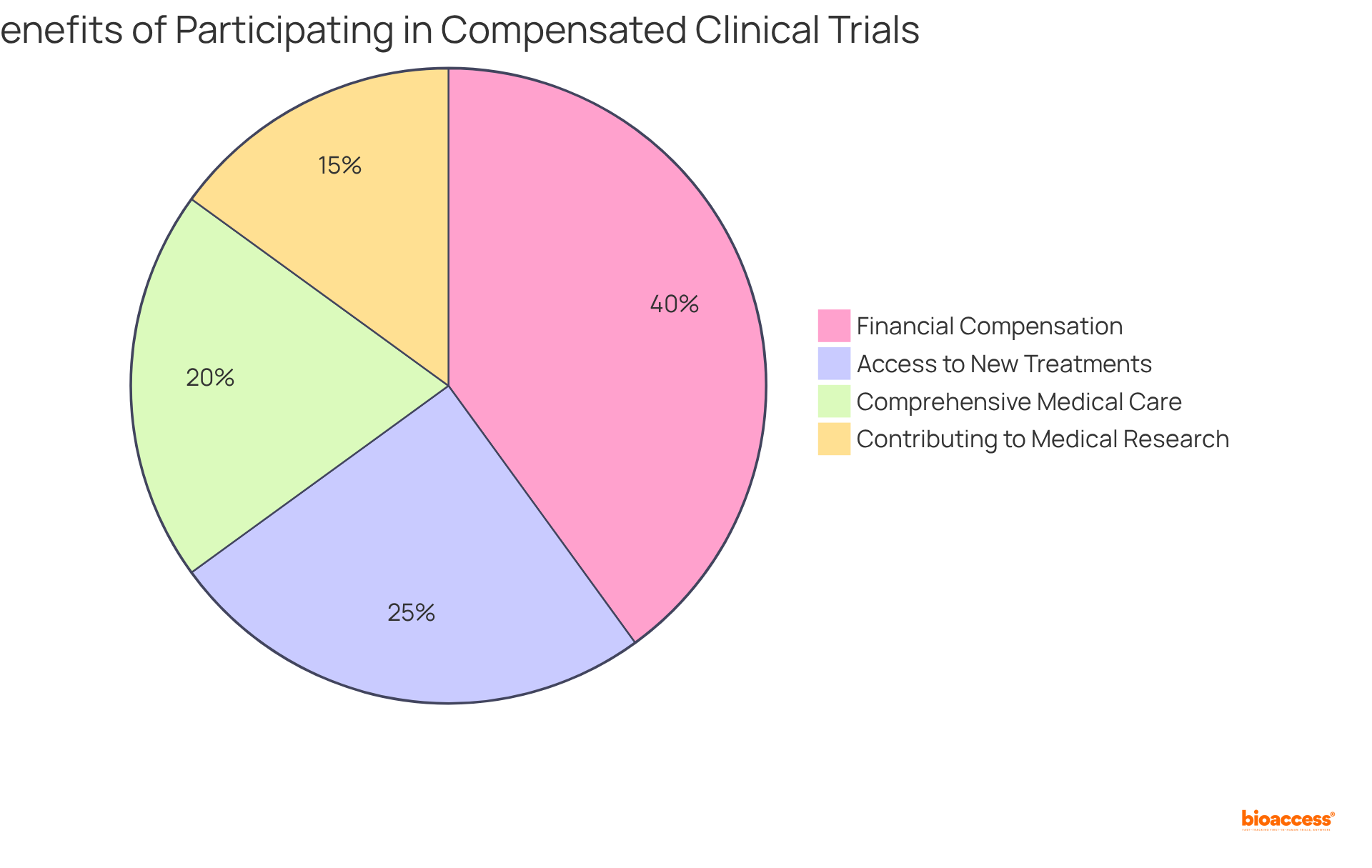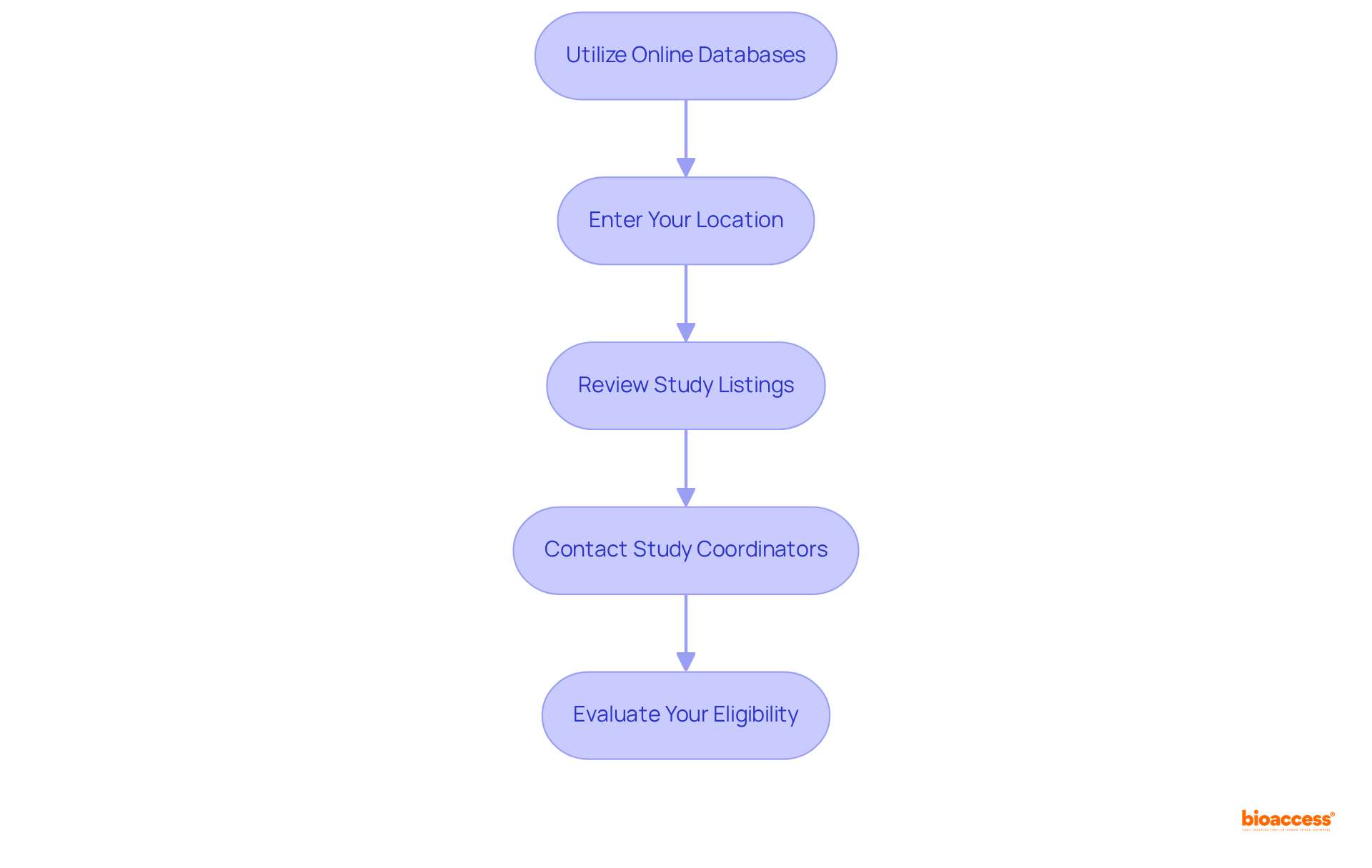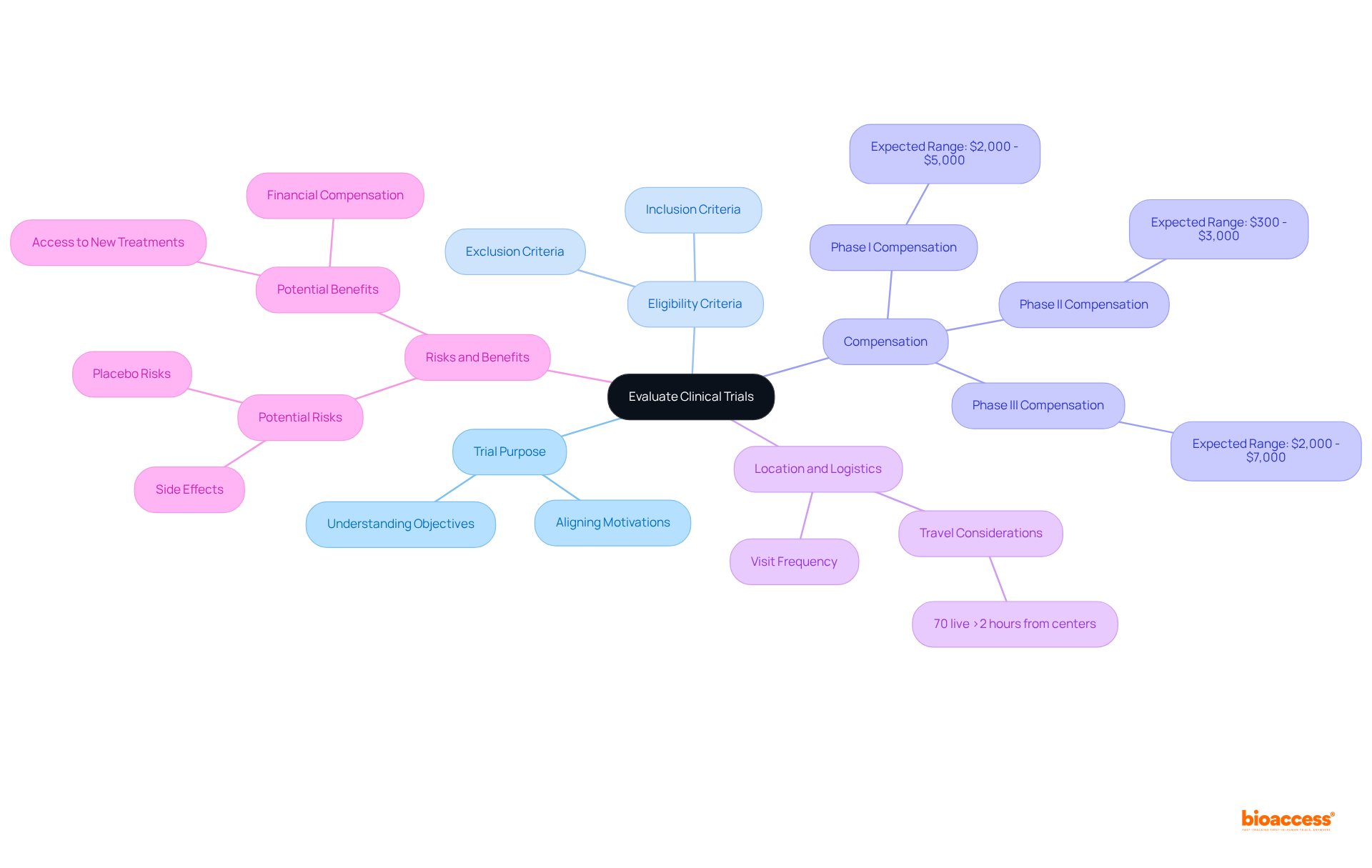


The article delineates a five-step process for locating local clinical trials that provide compensation, underscoring the necessity of comprehending eligibility criteria, the purpose of the trial, and the specifics of compensation. It elaborates on how to effectively utilize online databases, engage with study coordinators, and assess critical factors to facilitate informed participation. This guidance ultimately empowers individuals to navigate the complexities associated with enrolling in paid clinical trials.
Exploring the world of clinical trials presents a unique opportunity for individuals to contribute to groundbreaking medical research while receiving financial compensation for their participation.
With the potential to earn significant rewards and gain access to innovative treatments, many individuals find themselves wondering how to navigate the landscape of paid clinical trials available nearby.
What steps can one take to ensure they identify the right study that aligns with their health needs and offers fair compensation?
This guide delves into the essential process of identifying, evaluating, and participating in local clinical trials that pay, empowering readers to take charge of their health and financial well-being.
Compensated research studies, such as clinical trials that pay near me, are vital investigations that offer financial rewards to participants for their time and engagement, significantly enhancing medical understanding and fostering the development of new therapies. The benefits of participating in paid clinical trials are substantial:
Understanding these advantages can motivate individuals to pursue and engage in research studies that align with their health needs and interests, ultimately contributing to the advancement of medical science.

To identify local paid clinical trials, follow these steps:
Utilize Online Databases: Begin by exploring reliable clinical study registries such as ClinicalTrials.gov or MyLocalStudy.com. These platforms enable you to search for studies based on your location and specific health conditions.
Enter Your Location: Input your zip code or city into the search bar to filter results to your area. This will yield a list of studies actively seeking participants nearby, with a total of 544,522 registered investigations as of mid-2025, including over 66,130 studies currently enrolling.
Review Study Listings: Carefully assess the details of each study, including its purpose, eligibility criteria, and compensation offered. Look for studies that align with your health needs or interests. Notably, 42% of patients opt to gather information about studies from advocacy groups and nonprofit organizations, underscoring their role in the recruitment process.
Contact Study Coordinators: Reach out to the contact person listed for each study to inquire about the research, including what participation entails and any potential risks. Engaging with coordinators can provide valuable insights into the testing process. As one research coordinator noted, 'Grasping the subtleties of each study can greatly influence participant involvement and retention.'
Evaluate Your Eligibility: Confirm that you meet the qualification requirements for the studies you are interested in. This may include factors such as age, health status, and specific medical conditions. Given the increasing complexity of medical studies, understanding these standards is crucial for successful enrollment.
By following these steps, you can effectively locate and evaluate clinical trials that pay near me, which may be suitable for you.

When evaluating clinical trials, several key factors warrant consideration to ensure informed participation:
Trial Purpose: Understanding the primary objective of the trial is crucial. Whether it involves testing a new drug, treatment, or procedure, knowing the purpose allows you to assess its relevance to your health needs. Clinical researchers emphasize that a clear study objective not only directs volunteer expectations but also enhances the overall integrity of the research. As specialists observe, 'A clearly defined study purpose is essential for aligning participant motivations with research objectives.'
Eligibility Criteria: Carefully review the inclusion and exclusion criteria. Verifying that you fulfill these criteria is essential to prevent investing time in tests for which you are not qualified.
Compensation: Compensation details for participation in clinical trials that pay near me can vary significantly across different studies. As of 2025, average compensations for clinical study contributors are anticipated to range from $2,000 to $5,000 for Phase I studies, with Phase II studies providing between $300 and $3,000. Understanding these financial aspects can significantly influence your decision to participate in clinical trials that pay near me, since many participants view compensation as a key factor in their decision-making process.
Location and Logistics: Consider the setting of the experiment and the frequency of necessary visits. Ensure that you can commit to the schedule without undue inconvenience, as logistical challenges can deter participation. Notably, 70% of the population lives more than two hours away from academic medical centers, complicating participation.
Risks and Benefits: Assess the potential risks against the benefits of participation. This information is typically detailed in the study's informed consent document, which is crucial for making a knowledgeable decision. It is also important to discuss these factors with your healthcare provider to ensure a comprehensive understanding of the implications of participation.
By thoroughly assessing these elements, you can make a well-informed decision about engaging in a research study, ensuring it aligns with your health objectives and personal situation. The importance of trial purpose in clinical research cannot be overstated, as it directly impacts participant decisions and the overall success of the study.

Participating in paid clinical trials presents a distinctive opportunity to contribute to medical research while receiving financial compensation and access to cutting-edge treatments. By understanding the benefits and processes involved, individuals can make informed decisions that align with their health needs and interests.
This article outlines a clear, step-by-step approach to finding local clinical trials that pay, emphasizing the importance of utilizing online databases, evaluating eligibility, and thoroughly assessing trial details. Key factors such as trial purpose, compensation, and logistical considerations are crucial in determining whether a study is a suitable fit for potential participants.
Engaging in clinical trials not only aids personal health journeys but also plays a vital role in advancing medical science for future generations. As the landscape of clinical research continues to evolve, individuals are encouraged to explore the possibilities available in their area, ensuring they take an active role in their health and contribute to the broader medical community.
What are paid clinical trials?
Paid clinical trials are compensated research studies that offer financial rewards to participants for their time and engagement, contributing to medical understanding and the development of new therapies.
What are the financial benefits of participating in paid clinical trials?
Participants often receive payment for their time, which can vary widely based on the trial's complexity and duration. For example, Phase 1 studies typically offer around $2,000, while Phase IV studies may provide approximately $400. Compensation can range from under $100 to thousands of dollars.
How do paid clinical trials provide access to new treatments?
Participants may gain access to innovative therapies before they are widely available, which can potentially improve their health outcomes, especially for those with limited treatment options.
What kind of medical care do participants receive in clinical trials?
Many studies provide participants with extensive medical assessments and oversight, including regular check-ups and evaluations, ensuring their health is prioritized throughout the research.
How do participants contribute to medical research by joining clinical trials?
By participating, individuals play a crucial role in advancing science and helping others who may benefit from new treatments in the future. This contribution is essential, especially since only about 5% of adults in the U.S. engage in research studies.
Why is it important for more individuals to participate in clinical trials?
Increased participation is vital for advancing medical research, and financial barriers often deter potential participants. Clinical trials that offer compensation can help overcome these barriers and encourage broader involvement.